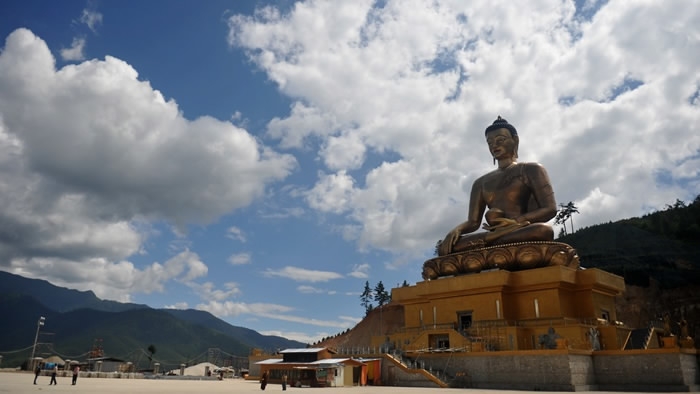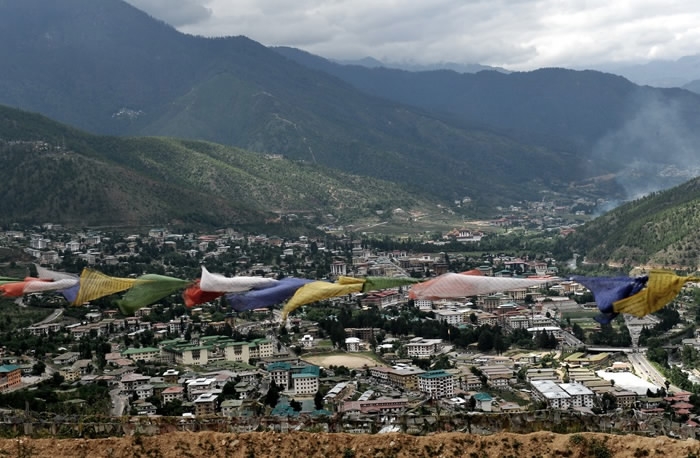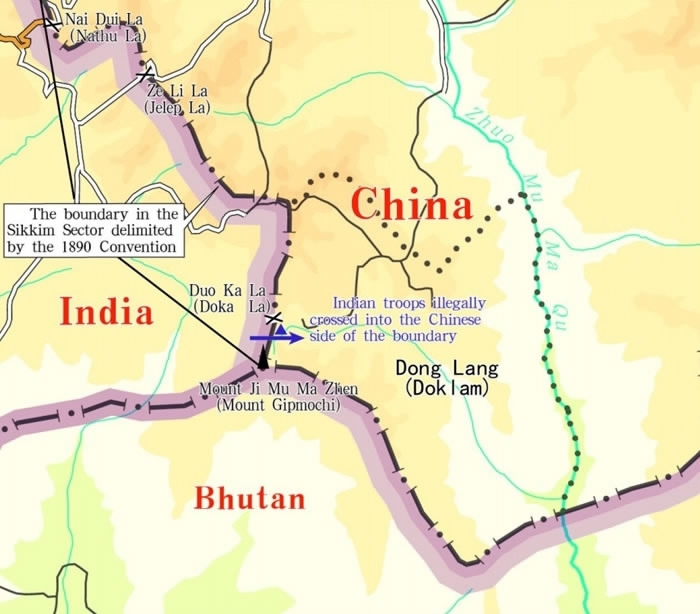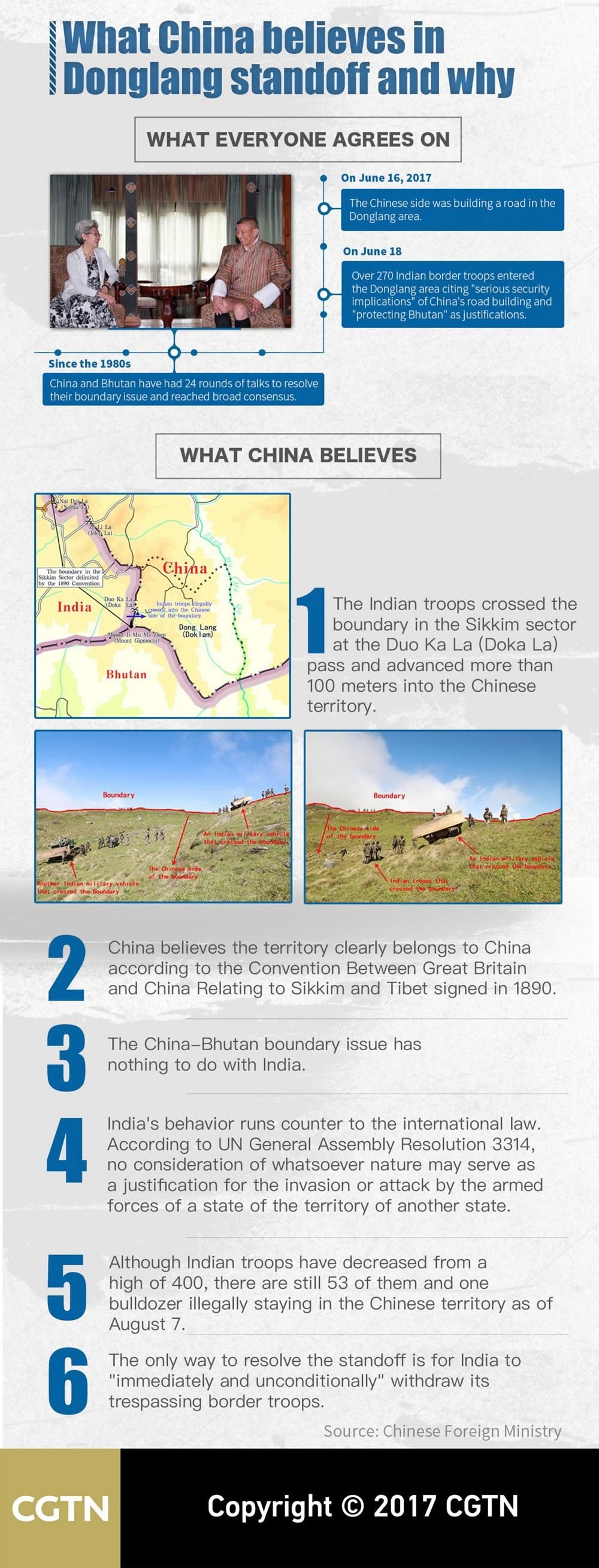
Politics
19:06, 17-Aug-2017
Bhutanese resent India's 'suffocating' interference in Donglang
CGTN

As the standoff between China and India in the Donglang area approaches two months, many Bhutanese feel the so-called "protection" by India has become "suffocating," Steven Lee Myers of The New York Times said in a report on Tuesday.
According to the Chinese Ministry of Foreign Affairs, the ongoing standoff began on June 18 after over 270 Indian border troops crossed the two countries' boundary in the Sikkim sector and entered the Donglang area, over which China has indisputable sovereignty.
India cited "serious security implications" arising from China's road building in the area and "protecting Bhutan" as justifications for its move, which China called "untenable."

Prayer flags flutter over the Bhutanese capital of Thimphu, June 16, 2015. /AFP Photo
Prayer flags flutter over the Bhutanese capital of Thimphu, June 16, 2015. /AFP Photo
'Meat in the sandwich'
The New York Times report said Bhutan, caught between the two powerful rivals, has shown little gratitude for India's interference and does not want to offend either country. Many in Bhutan resent that India's "protection" has put the small country in a difficult situation.
Pema Gyamtsho, a leader of the opposition party in Bhutan's National Assembly, said Bhutan "would be the meat in the sandwich" if China and India went to war, adding that his country "shouldn't have to" make a choice between Beijing and New Delhi.
The Bhutanese government has so far avoided saying whether it asked India to intervene in China's road building in Donglang. Bhutanese Foreign Minister Damcho Dorji said last week that he hoped the standoff would be resolved "peacefully and amicably."
Bhutan's media have said "virtually nothing" about the standoff, the report noted.

A sketch map of the site of the current standoff between China and India. /Photo via Chinese Foreign Ministry
A sketch map of the site of the current standoff between China and India. /Photo via Chinese Foreign Ministry
'Nothing to do with India'
Beijing has stressed the boundary issue between China and Bhutan has nothing to do with India and that India has no right to "make territorial claims on Bhutan's behalf."
China and Bhutan have conducted 24 rounds of talks to resolve their boundary issue since the 1980s and reached a broad consensus, the Chinese Foreign Ministry said in a statement released on August 2.
India has not only violated China's sovereignty but also "challenged Bhutan's sovereignty and independence" by using Bhutan as an excuse to intrude into the Chinese territory, the statement added.

CGTN Graphic
CGTN Graphic
According to The New York Times report, many Bhutanese suspect that India intends to "block Bhutan's efforts to establish diplomatic relations and expand trade with Beijing," while some fear that India's behavior could undermine Bhutan's border negotiations with China.
"Bhutan has every right to its sovereignty; that's the crux of the thing," Wangcha Sangey, a former publisher and head of the Chamber of Commerce and Industry told The New York Times. "We have the right to live the way we want to live and to have the foreign relations we want to have."

SITEMAP
Copyright © 2018 CGTN. Beijing ICP prepared NO.16065310-3
Copyright © 2018 CGTN. Beijing ICP prepared NO.16065310-3